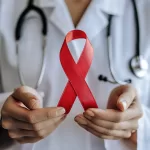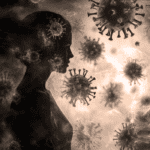
Tuberculosis (TB) is a serious infectious disease that remains a significant health concern globally. It primarily affects the lungs but can impact other parts of the body as well. Early diagnosis, accurate information, and timely treatment are key to managing and curing TB effectively. This blog addresses some of the most frequently asked questions about TB to help patients and their families gain clarity and take the right steps toward recovery.
1. What is TB?
TB is an infectious illness caused by the bacterium Mycobacterium tuberculosis, impacting the lungs as well as other organs of the body.
2. Is TB contagious?
Yes, pulmonary TB (TB of lungs) is contagious. It spreads via airborne droplets when an infected individual talks, coughs, or sneezes.
3. Is TB always in the lungs?
No, TB can also occur in areas such as the brain, spine, lymph nodes, heart, intestines, kidneys, etc, referred to as extra-pulmonary TB.
4. How do I know if I have TB?
Persistent coughing lasting over two weeks, fever, weight loss, and sweating at night are the usual symptoms of pulmonary TB. Fever, weight loss, weakness and decrease in appetite may remain the common symptoms of all the types of TB. However, the symptoms of extra-pulmonary TB depend on the organ involved. For example, TB of lymph nodes may present with neck or underarm swelling, spine TB usually presents with long term backache, TB of bones may present with pain, swelling and pus formation, TB of heart may present with breathlessness. Testing by a doctor is essential for confirmation.
5. What tests diagnose TB?
Unfortunately, there is no test which can be done from the blood to diagnose TB. Tests have to be carried out on the samples obtained from the organ which seems to be infected with TB. Pulmonary TB diagnosis is made using tests such as sputum or broncho alveolar lavage analysis (conventional tests along with molecular tests like Gene Xpert), chest X-rays, CT scan. Fluids, tissues, bone or pus has to be processed for biopsy and other tests depending on the organ involved. Skin tests like Mantoux test and blood test like TB-Gold (IGRA) should not be used for
diagnosis.
6. Can TB be cured?
TB is curable with the right anti-TB medication regimen prescribed by healthcare providers.
7. How long does TB treatment take?
Typically, treatment ranges from six to twelve months, varying by severity and type of TB.
8. What happens if I miss TB medications?
Skipping doses may lead to development of resistance against the medications, leading to drug-resistant TB, worsening the illness and the outcomes, along with extending of the treatment duration.
9. What is latent TB?
Latent TB occurs when bacteria remain dormant in the body without showing symptoms but can become active later.
10. Can I work if I have TB?
During the infectious phase, it's important to limit public contact. Return to work only after your doctor advises.
11. Is TB deadly?
If left untreated, TB can be life-threatening. Early diagnosis and appropriate treatment are critical for survival.
12. Can TB recur after treatment?
Relapse is possible, particularly if the immune system weakens or the treatment course is incomplete.
13. What foods help recover from TB?
Consuming a nutritious diet with ample proteins, vitamins, and calories supports recovery from TB.
14. Can TB cause permanent damage?
Without timely treatment, TB can result in irreversible damage, such as scarring of lung tissues.
15. Is TB hereditary?
No, it isn’t inherited but is transmitted through close contact with an infected person.
16. Do I need to isolate if I have TB?
Isolation is crucial during the contagious phase to prevent infecting others. Consult your doctor for advice.
17. What is drug-resistant TB, MDR-TB or XDR-TB?
Drug-resistant TB, including MDR-TB and XDR-TB, is a form where there is resistance in the mycobacteria to many medicines. This type of TB does not respond to standard
treatment with first-line AKT.
18. Can children get TB?
Yes, children are susceptible to TB, especially if they are exposed to an infected individual in proximity.
19. Is vaccination available for TB?
The BCG vaccine protects young children from severe forms of TB, but is less effective for adult TB.
20. Can TB cause infertility?
Untreated TB in the reproductive organs (genital TB) can lead to infertility issues.
21. What are the side effects of TB medications?
Possible side effects include skin rashes, liver issues, nausea, and joint discomfort. Inform your doctor about any severe reactions.
22. Can TB coexist with HIV/AIDS?
Yes, HIV weakens the immune system, making co-infection with TB more likely and severe.
23. Is TB treatment free?
Many government programs offer free TB diagnosis and treatment services in public healthcare facilities.
24. How much does TB treatment cost in India?
TB treatment is offered free of charge at government healthcare centers under the National TB Elimination Program. However, in private hospitals, expenses can vary significantly depending on the type of TB, diagnostic tests, medications, and other associated factors. Additional consultations and care may further influence the overall cost. Book your appointment with Tathaagat Infectious Disease Clinic by calling 9664630466 to learn more about the expenses.
25. How is TB prevented?
Prevention includes vaccination, early treatment of TB cases, and wearing masks to curb airborne transmission.
26. Can TB cause chest pain?
Chest discomfort can arise from TB in the lungs and heart, especially during coughing
episodes and exertion.
27. Can TB be cured without medications?
No, AKT is essential for treating TB. Home remedies cannot replace medical therapy.
28. Does smoking worsen TB?
Smoking damages the lungs and exacerbates TB symptoms, negatively affecting recovery.
29. Can TB spread through food or water?
TB spreads through air, not via consuming contaminated food or water.
If you or someone you know has symptoms or concerns about TB, consult with our infectious disease experts today. Call Tathaagat Infectious Disease Clinic at 9664630466 to schedule your appointment and take the first step toward recovery!






